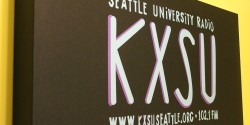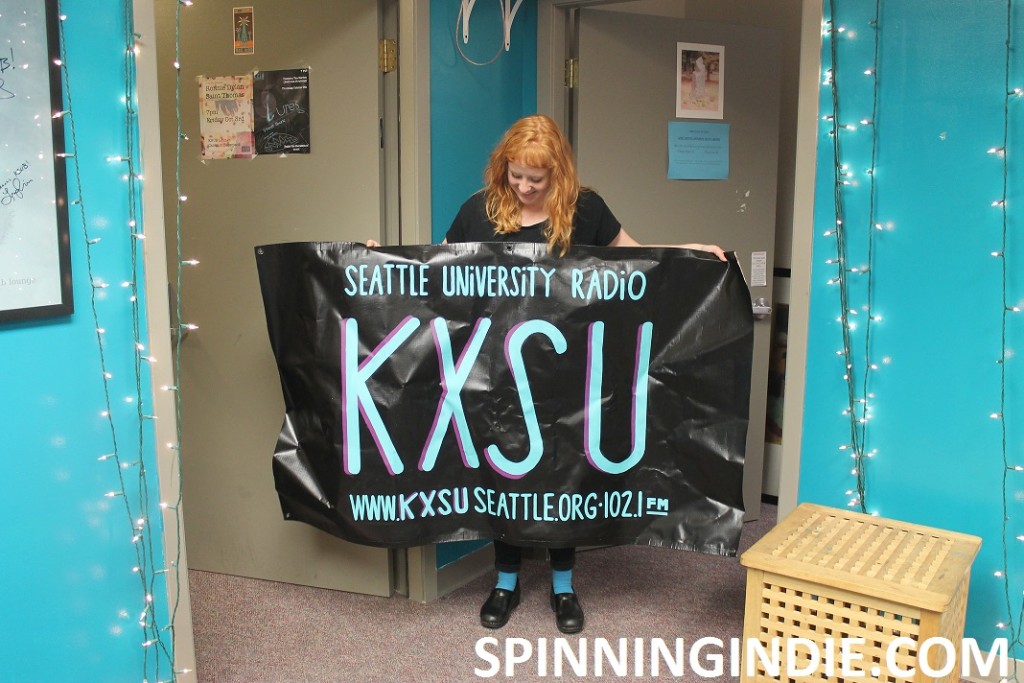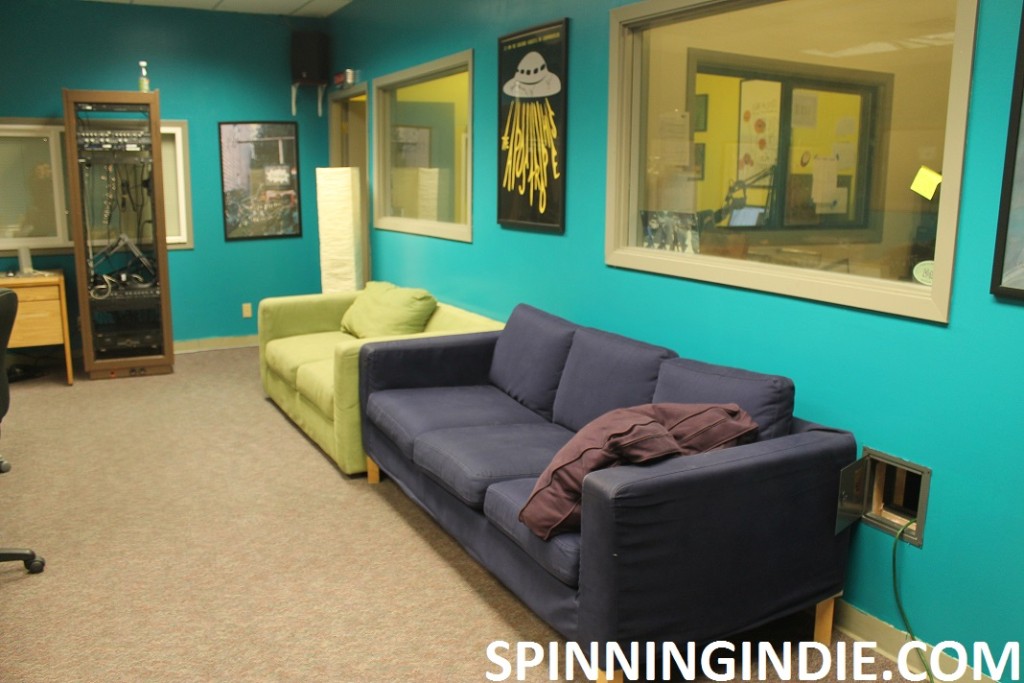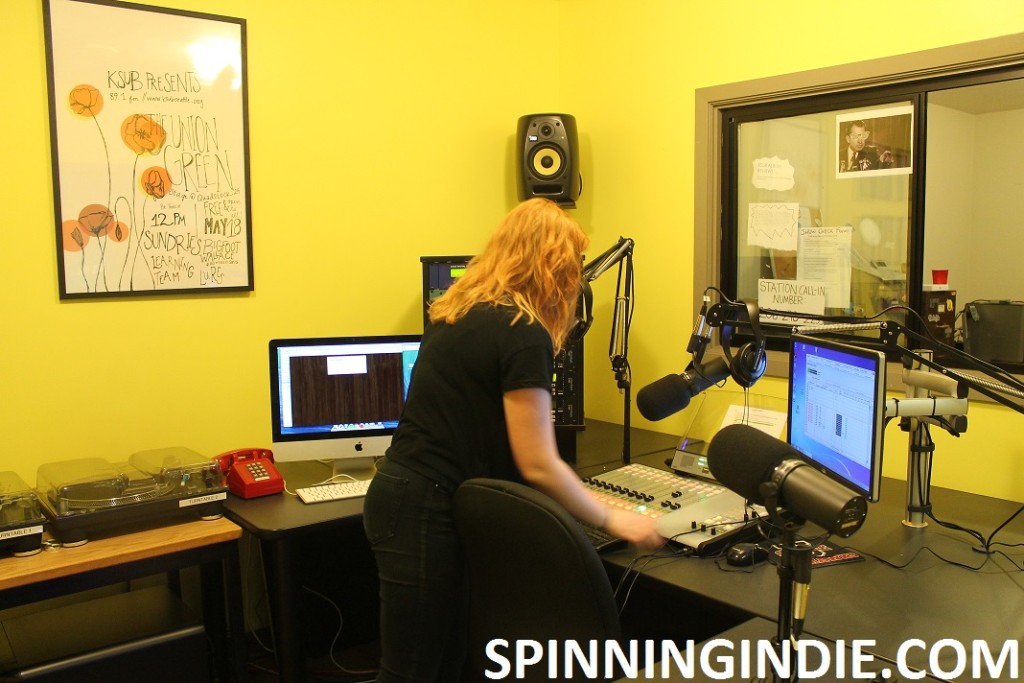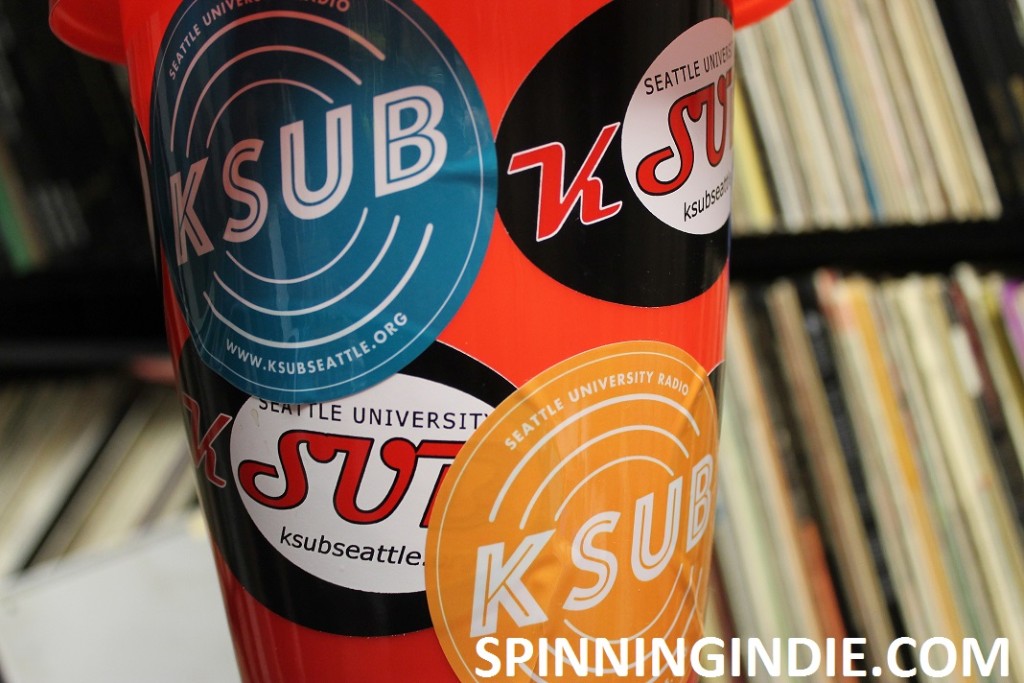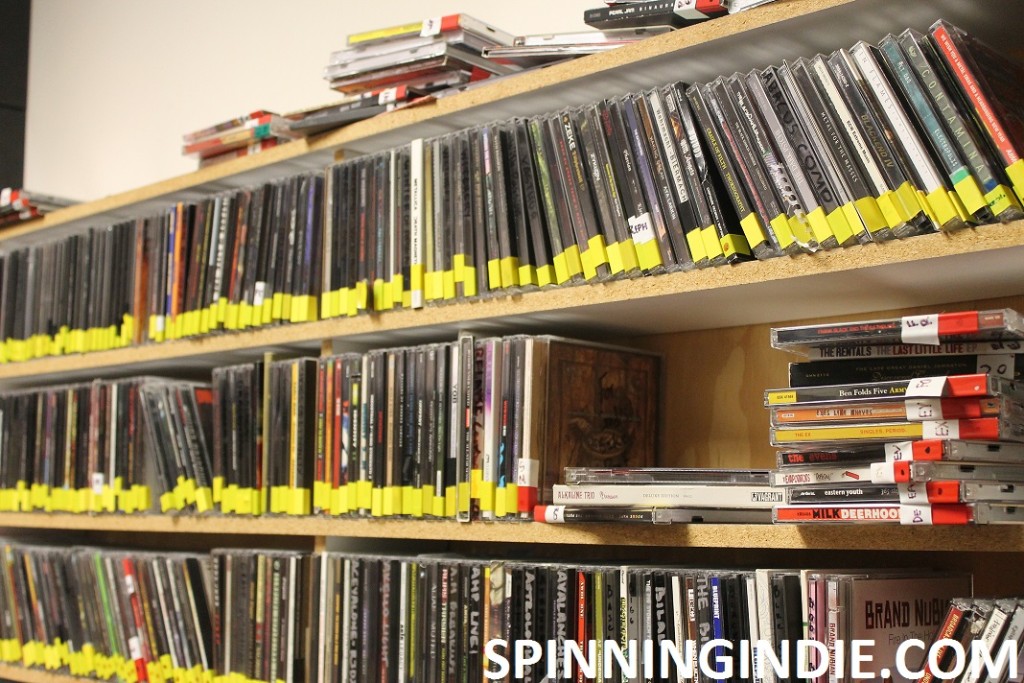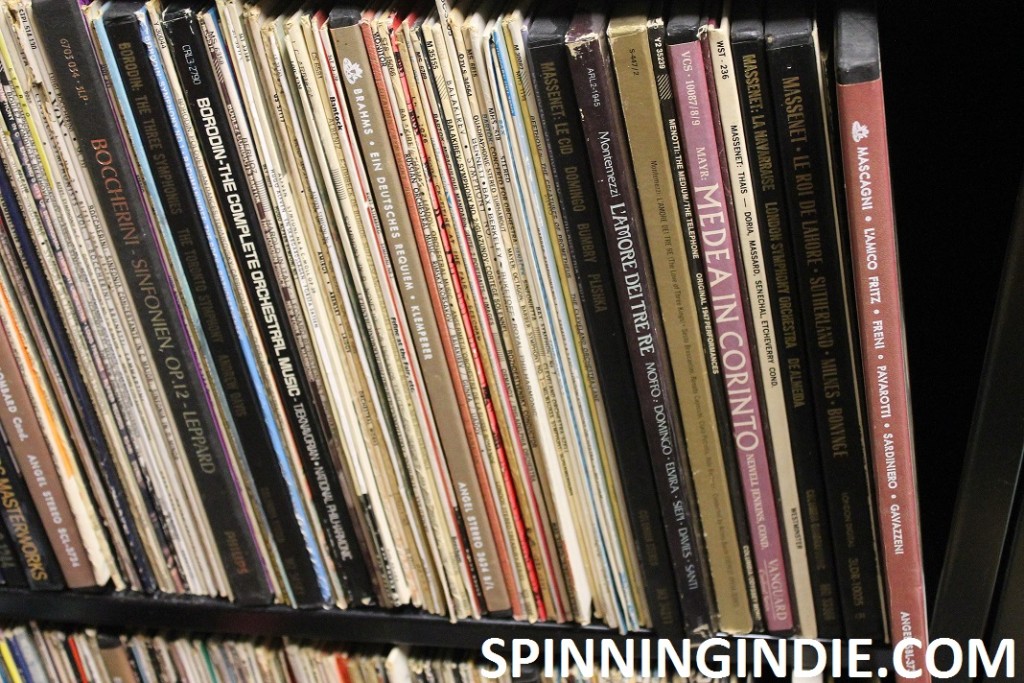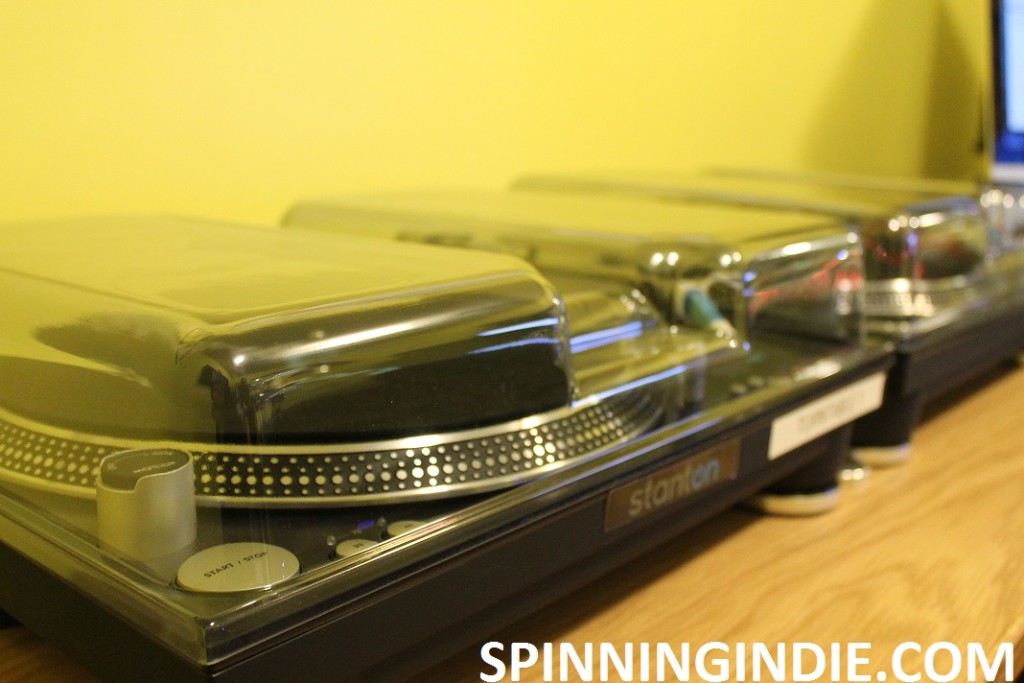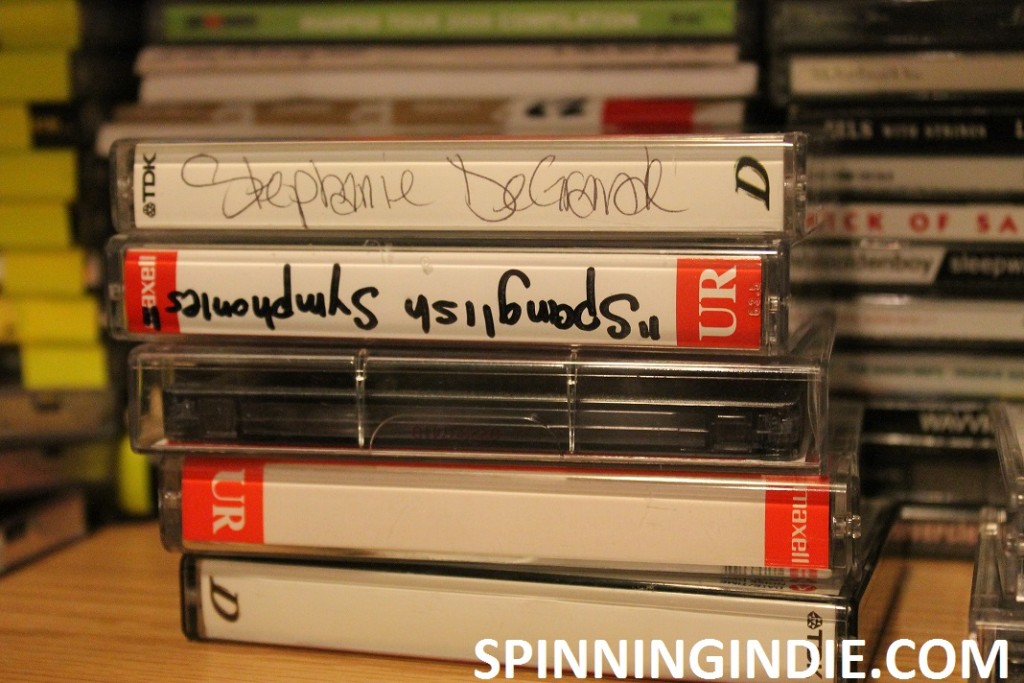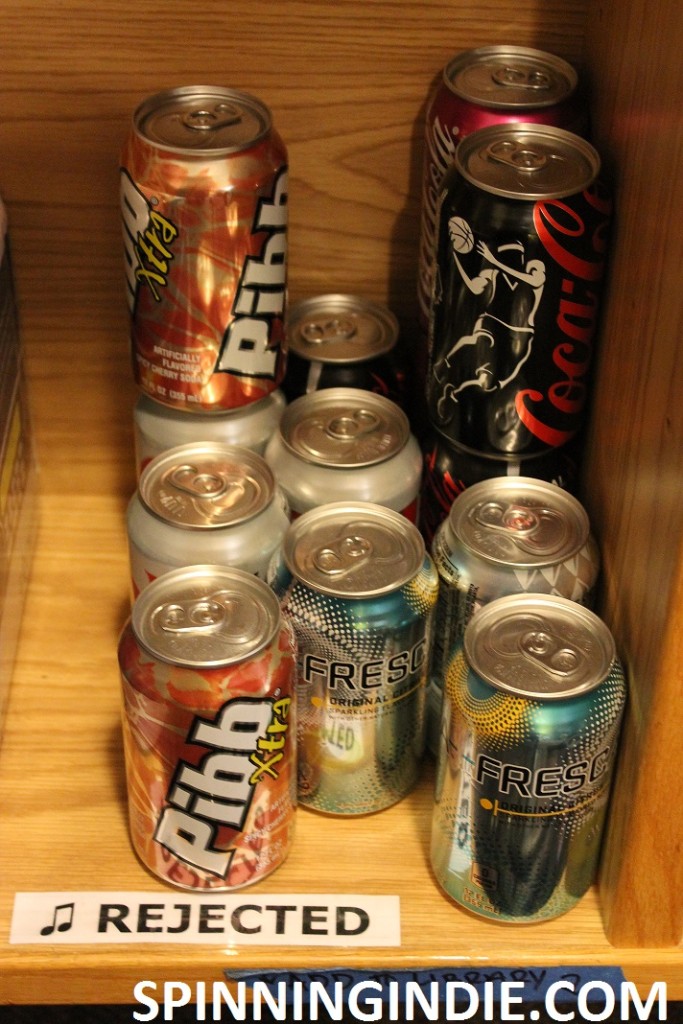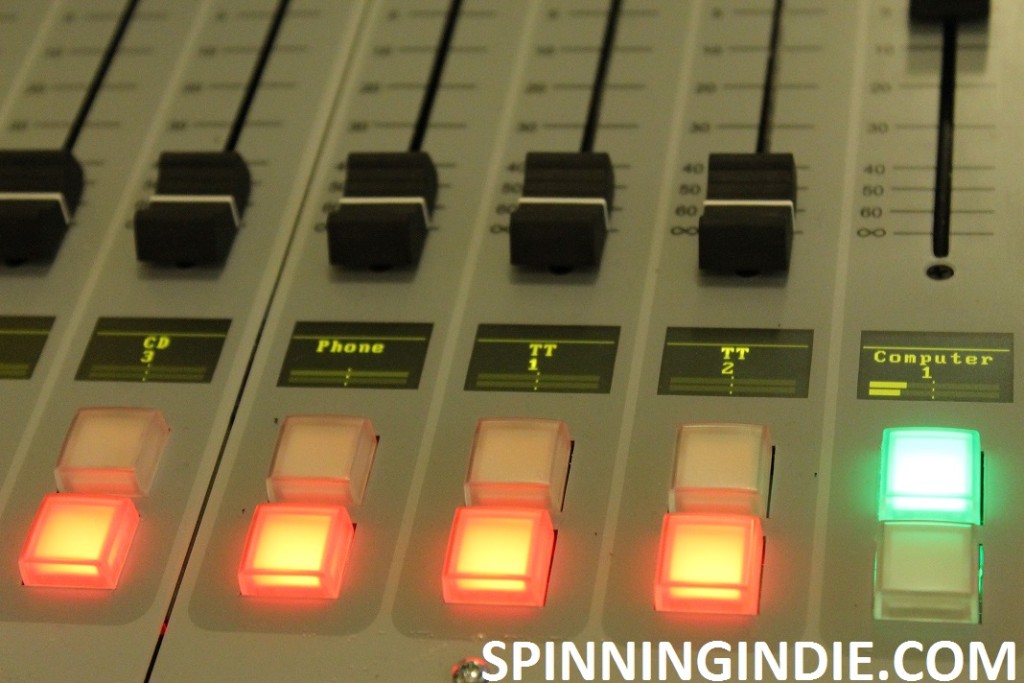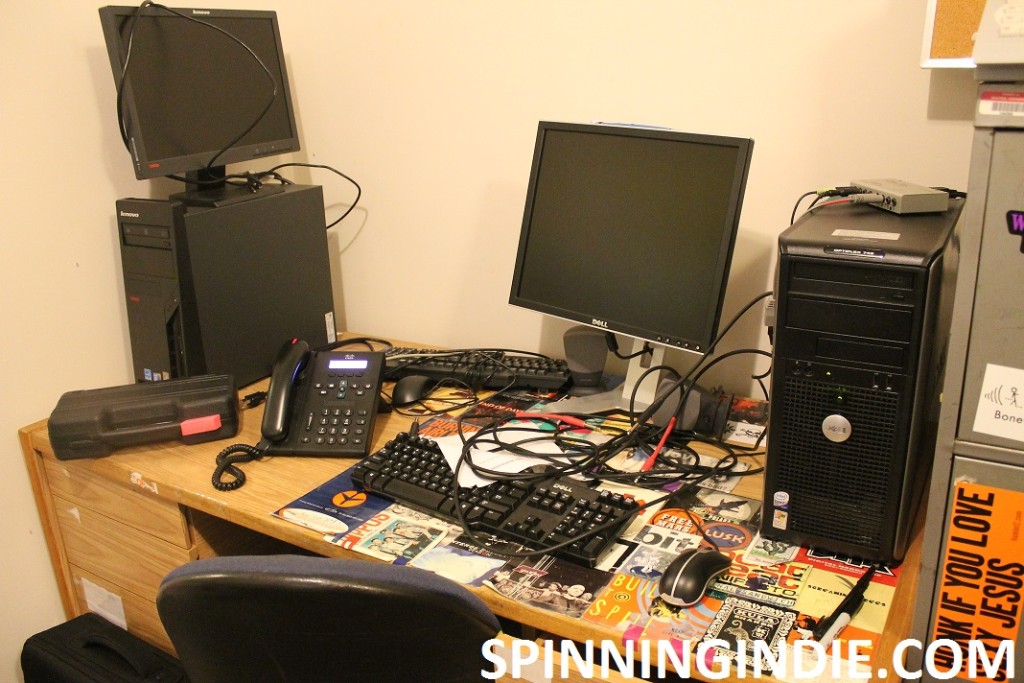During my trip to Seattle last October, my fifth and final radio station visit was to see college radio station KXSU at Seattle University. Formerly known as KSUB, in April, 2014, the streaming radio station was granted a construction permit for a new low power FM (LPFM) station.
I met up with KXSU’s General Manager Shannon Phelps at the College Broadcasters Inc. (CBI) conference on October 23, 2014 and we walked over to Seattle University together. Housed in a dorm, KXSU has a lovely, brightly painted space. Its open lobby contains a large table in the center and the perimeter of the room features numerous couches. The on-air studio, office, and a music library all open into the lobby.
A campus-only and streaming radio station up to this point, the station needed to change its call letters since KSUB was already in use by a FCC-licensed station. Phelps told me that KXSU hosted a party with three local bands and revealed the new call letters at that event last year.
Phelps explained that applying for a LPFM license was the logical result of recent improvements at KXSU. Staff and DJs have been getting more serious about programming and Phelps said that LPFM was “the next step, to legitimize our station.” After numerous meetings with the school, the station was given permission to apply for LPFM. She said that it’s hoped that they will get on the air by summer 2015 and can then have a “big, loud coming out in the FM community” in fall 2015.
The student-run radio station began in 1994 as campus-only FM station KSUB, according to Phelps. At the time of my visit, the DJ schedule wasn’t very full, as the station was in the midst of re-training everyone on some new equipment. Generally, live shows air between 8am and 2am, although DJs are allowed to be in the building 24/7. When there isn’t a live show, a “continual playlist” runs off of the station’s “jukebox” of music.
Phelps said that KXSU airs a wide range of shows, with DJs having control over the type of programming. Examples have included sports talk shows and specialty music shows focused on jazz, hip hop, music from the 1960s, psych rock and more. Additionally, DJs are asked to play some specific music (rotations) from the KXSU library, including new music and local tracks every hour.
Although DJs can play music from CDs, records, and digital playlists, rotation music is a mix of CDs and digital files. KXSU does also get sent some vinyl, but the station usually uses a digital download code to save a digital copy to rotation. Most DJs play digital music on their shows, but there are also some shows that air exclusively vinyl. Despite the digital focus musically, I was told that it wasn’t until recently that KXSU moved from paper playlists to an online playlist reporting system.
Phelps told me that a former alum DJ did a punk vinyl show and also said that a handful of people at the station play cassettes. She mentioned that a former Music Director was really into tapes and played a lot of cassettes and vinyl. Additionally, there are some local Seattle bands that do tape-only releases.
Students, alumni, and faculty are allowed to do shows over KXSU and Phelps mentioned that some of their DJs include the Head Librarian and a Law Professor. The majority of DJs, however, are students. In the past there have been up to 70 DJs at KXSU, but it was closer to 40 in recent years, according to Phelps. She anticipated that with LPFM that number would “blow up,” and said that the station is already getting more attention now that LPFM plans are in the works. She said that it helps to be in Seattle, which she says is a “community that values radio.”
In preparation for being licensed by the FCC, KXSU is already asking DJs to abide by FCC rules, including not airing obscenities. DJs can lose their shows if they break some of the main rules of the station, thanks to a “3-strikes” policy.
Thanks so much to Shannon Phelps for touring me around KXSU and best of luck to the station as it prepares to begin broadcasting over LPFM.
This is my 75th radio station field trip report. My backlog of write-ups is dwindling and I have just one more 2014 trip to report on (a college radio station in San Francisco) before I start visiting stations again. See my most recent field trips on Radio Survivor and see all of my station field trips on Spinning Indie.

